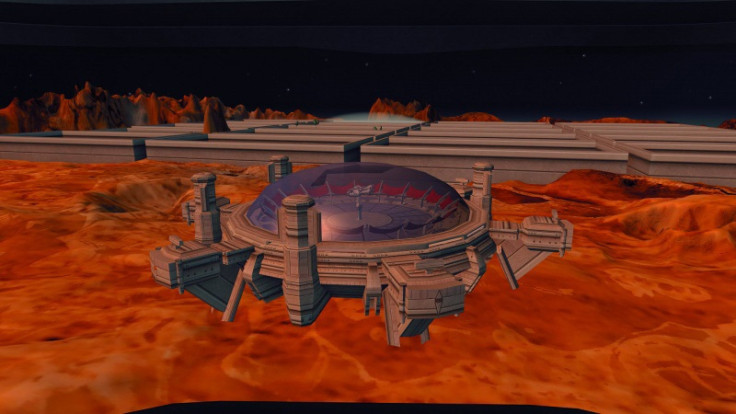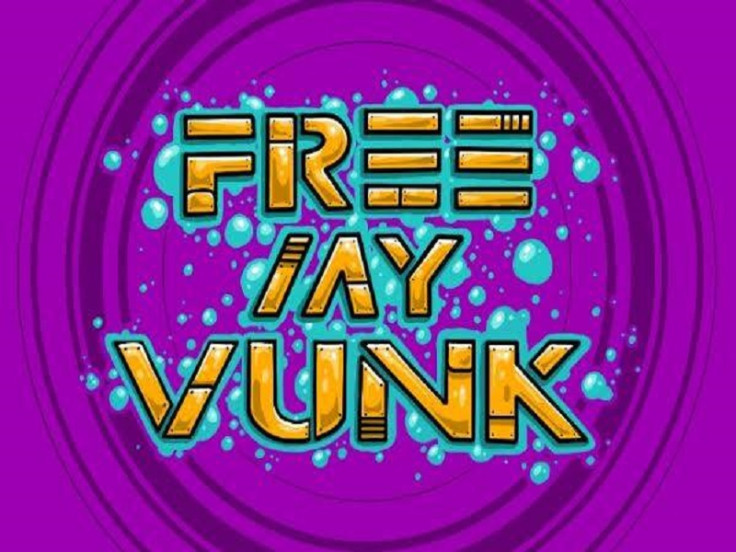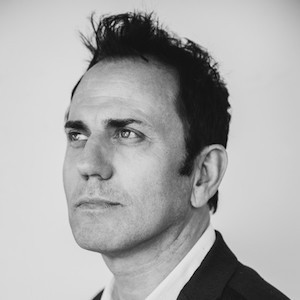Gaming on the blockchain – the trillion dollar jackpot

Gamers have been trading in digital assets for decades, and paying for in-game stuff using digital currency is second nature to them. Back in the 1990's we saw the first massive multi-player online games (MMORPGs) appear. Now, another revolution in gaming is poised to happen, and it will be driven in part by new ways to do value transactions relating to online gaming.
Beyond just using bitcoin for gaming, public blockchain technology such as Ethereum can provide a data-rich shared public ledger that can empower gamers to take in-game asset ownership to another level. At the Ethereum developers conference in London in November of last year, a panel session and a bunch of presentations explored ways to exchange in-game value, and also new ways of holding game assets in escrow for trade. The Ethereum protocol is currently being used to mould revolutionary new gaming platforms such as FreeMyVunk and EtherPoker - pioneers of what gaming will look like in a more decentralised online world.
FreeMyVunk is a platform that uses blockchain technology to create a transparent and frictionless infrastructure for all the stuff that has value in virtual game environments. Currently, there exist a labyrinth of obstacles which gamers must overcome if they wish to trade virtual objects with other players. Despite the difficulty, it's not uncommon for some special edition of a particular sword or gun to change hands for hundreds of dollars. The largest transaction for a virtual in-game item ever was the sale of the Club Neverdie space station within the Entropia Universe, which sold for $635,000 – more on this later.
Tyler Smith, co-founder FreeMyVunk explained that anyone who has ever played a video game and thought about trading their World of Warcraft Thunderfury which they don't use any more for their friend's Galil in Call of Duty: Black Ops, knows the frustration of being told they own something, but not having control of their virtual property.
He told IBTimes: "The FreeMyVunk Movement is going to create a free market and enable gamers to trade their vunk (virtual junk) in a provably fair, transparent and trustless way directly from within their digital game wallets. Our overarching goal is to build the software interfaces needed for game developers and players to begin using the blockchain as the foundation for virtual asset ownership, storage and transfer. No more will gamers have to lurk around shady forums and risk being banished from their beloved game or having their Paypal account frozen for unauthorised trades."
The FreeMyVunk platform chose the Ethereum blockchain because of its flexibility, to provide a more streamlined and secure system by which game developers can offer goods to payers and the players can own the goods both inside and outside the game, in the form of a crypto-token.
"We provide tools in the form of plug-ins to major game development platforms so that the games can issue these in-game assets as tokens. The plug-in also provides the game developer with a digital wallet template for their players; when a player signs up, he gets a digital wallet which is designed to receive and store any new type of asset created by the developer.
"The players can also send these game-item tokens to each other provided they both have a token-enabled wallet. In this sense, the blockchain acts as an expandable multi-game database. It logs all new assets in as tokens and tracks who owns them and securely stores them. But the blockchain is a lot more secure than the current system of isolated databases and servers which are more easily hacked." said Smith.
Such assets could be digital currency within the game, or an object; in a war type game it could be a sword, a gun or a magic potion. It could also be things like different backgrounds, skins, additional levels, a special edition release of the game; and even collectible things like the first hundred of a certain type of thing, all of which can be owned and tracked by the blockchain by making them into specific tokens.
"The value proposition for the players is that once they have acquired these virtual goods they are not constrained by the trade mechanism in-game. They can actually go out to marketplaces - online marketplaces outside of the game - and trade these tokens because they reside on a platform that's neutral. That's what the blockchain really provides – a third party neutral platform that no one owns and no one can manipulate," added Smith.

But FreeMyVunk realises they can't do this alone, they will need community support and consumer demand to drive adoption. For this purpose, Smith said their platform has released their own community token called VNK. This token is to reward the community that gets behind the FreeMyVunk Movement. He said rather than a pre-sale, the VNK token is being given away to help crystalize the community behind a common incentive; he likened it to LTB coin, the community token for Let's Talk Bitcoin. In other words, VNK tokens will have a community building function to help inspire people to spread the word and incentivize people to build the movement.
When asked where does VNK gain its value, Smith said, "In the beginning, VNK will have two main use cases. First, anyone using our VunkWallet applications will be able to send transactions by paying a transaction fee in VNK instead of Ether. On Ethereum, all transactions require a fee, this is a built in mechanism to help support the network and all fees are paid in Ether. However, we are creating a way to allow our users to pay these fees in VNK instead of Ether, thus making it easier for them to immediately start using their wallets.
"Second, within our upcoming marketplace we will require users to pay a little VNK in order to post buy/sell/trade orders on the marketplace. That works as kind of an anti-spam, but also it's a way of rewarding those who have been part of building the movement because they will be able to trade using the VNK they received for free.
If you don't have any VNK you will need to get it from someone who does. Which means that VNK will have a price. So our initial supporters will be able to monetise their tokens; because the community has built something that actually is meaningful and people want to use. That's the idea behind the VNK token and how we envisage bootstrapping the community."
Gamers are used to holding digital assets. "Every time I open up a game I have a digital wallet. Right now it's just a UI connected to a database located on the game's proprietary servers. But in the future, instead of the wallet connecting to a private server, it will access the blockchain. This means that the player can open up his wallet even when they are not playing the game and still have access to all their stuff.
"We view these virtual assets as being a next global asset class. People will have in their digital wallet some bit-dollars, some bitcoin, some Digix gold tokens, and then they are going to have a whole bunch of other stuff we call vunk, virtual goods that are theirs, part of their wealth. You can speculate and invest in digital items, just like you could a stock. Or on virtual property even, like if there's a really popular game and you own a potions shop that happens to be on a valuable plot of land in that virtual world. That's a real asset; people can make real money from that."
The world record for the most valuable virtual asset belongs to Jon 'Neverdie' Jacobs, who sold 'Club Neverdie', a nightclub and shopping complex housed within a bio-dome located on a particularly mineral-rich asteroid, for a staggering $635,000. Jacobs, who will be talking at Gamelab Mobile in Barcelona this month, purchased the asteroid in 2005 (five years before the sale) for $100,000, after taking out a mortgage on his real-life house.
Jacobs' Neverdie Studios has since produced a selection of new virtual worlds including Rocktropia, Poptropia, Motorhead Stadium and Neverland, which is eerily based on Michael Jackson's private kingdom. Jacobs, who is running to become the first President of Virtual Reality, is also excited about the potential of the blockchain, and is officially rallying behind the FreeMyVunk platform.
Jacobs said that the 90's explosion in massive multi-player online games (MMORPGs) meant people began looking to trade in virtual goods that had value in terms of enhancing their time online, but they faced problems because these worlds did not support monetising of their time and effort – and he saw the potential value.

He told IBTimes: "They ended up going to eBay and trading in virtual currency and goods, and this was very flawed. If I buy something from you on eBay that exists inside a game, first of all I have to have my avatar account on the same server as you. It wasn't one vast game world, it was like shards, and second of all, there was no guarantee you would even be there to give it to me.
"Game companies starting putting out injunctions against eBay to stop people trading in virtual goods. Now, 20 years later, we can look back and see this was the first major trading in virtual goods, and virtual currency."
Second Life, the virtual world developed by San Francisco-based Linden Labs, seemed to steal much of headlines concerning virtual worlds inhabited by avatars, or "residents". But Jacobs maintains games like Project Entropia, were actually built from the ground up with a view to monetising people's time and investment. For example, players might choose to mine minerals to make armour, or oil to make gas and drive vehicles; these sorts of assets could be traded, and would also be used up and depleted, just like in the real world. From large scale assets down to individual's skill points, these were tradable, with the additional assurance that Entropia dollars retained a fixed exchange rate with US dollars from day one.
"The Entropia platform generates revenue from player to player transactions and from the overall usage of items; to drive a ship for example you need gas, you need oil. So using tools and skills you go and find the oil, and depending on how good a player they are, they will lose money or make money in the process."
Smith pointed out that unlike the frustration we see around converting Bitcoin to Dollars and vice versa, tokenising virtual assets can be frictionless proposition within the world of gaming. He said: "To me it just makes so much sense. You have these people who are very savvy about holding digital assets. And then you have a new technology which allows seamless and frictionless accounting of those assets.
"When you have something that's already virtual and has no system of trade, it just seems like this is natural; it just makes sense that these two things would come together."
© Copyright IBTimes 2025. All rights reserved.






















